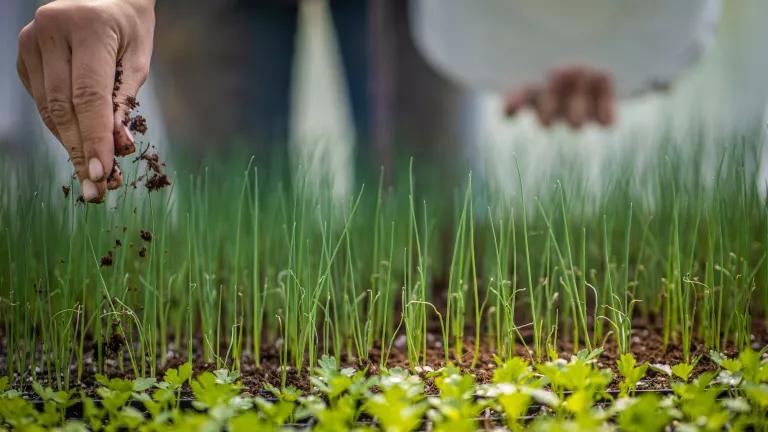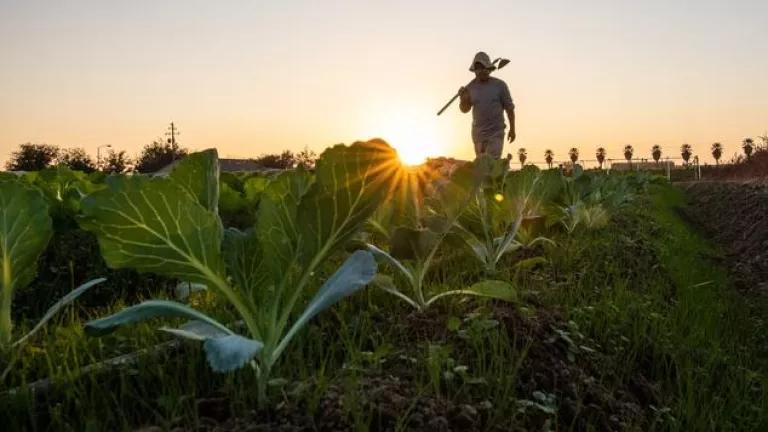Madison Commits to Food Waste Reduction
A new resolution passed by the Madison, WI Common Council sets a food waste diversion goal of 50% from the landfill by 2030 and commits to establishing metrics for measuring and tracking progress.

Metro buses with "Plan, Use, Create, Scrap" messages line up in Madison
In the United States, up to 40% of food is never eaten. In the City of Madison, 10,000 tons of food scraps are sent to the Dane County landfill each year, the GHG emissions equivalent of more than 1,000 cars. Unfortunately, the Dane County landfill only has 10 more years of usable space—space that shouldn’t be taken up by food that could have been eaten or composted.
Thankfully, the City of Madison is committed to reducing food waste. This month, the Madison Common Council adopted a resolution to address food waste. The resolution, supported by the Sustainable Madison Committee and the Madison Food Policy Council, sets a food waste diversion goal of 50% from the landfill by 2030 and commits to establishing metrics for measuring and tracking progress. Madison’s goal is aligned with the United States and United Nations Sustainable Development Goal of 50% reduction in food waste by 2030.
In addition to the goal, Madison’s resolution commits to educating the public on food waste reduction benefits and landfill diversion alternatives. Based on NRDC’s food waste calculator, an estimated 40% of the city’s food waste comes from the residential sector, meaning Madison’s residents will have an important role in meeting the goal by reducing food waste in their own homes.
To start, the city recently worked with a local artist collaborative to develop a messaging campaign aimed at consumers encouraging them to “Plan, Use, Create and Scrap.” By following these four simple themes, Madison’s households can reduce their own food waste: plan what to purchase, use what you have, creatively approach leftovers, and compost the scraps you can’t eat.
Food waste reduction certainly does not end with consumer engagement, however, and Madison’s resolution and participation in the Food Matters Regional Initiative include strategies and commitments that will be implemented over the next several months and years to accomplish the city's 50% reduction by 2030 goal. Key priorities from the resolution include:
- Periodic review and updates to the food waste goals and activities by the Sustainable Madison Committee
- Support for the budgetary and city staff requirements to meet food waste related goals and timelines
- Ongoing collaboration with local organizations and governments to identify and implement actions that reduce food insecurity
As part of their participation in the Food Matters Regional Initiative, Madison is also ramping up food scrap recycling options in the city and encouraging backyard composting through events like their upcoming compost bin sale. In the future, the city plans to engage with local restaurants and city health department officials on food waste reduction.
NRDC is excited by Madison’s resolution because it marks further commitment within the Great Lakes region to reduce food waste. By aligning efforts with the national and international goal, Madison has demonstrated its leadership in tackling climate change now. With less than ten years remaining to achieve the goal, accelerated action will be necessary. We’re proud to be partnering with Madison as part of the Food Matters Great Lakes Regional cohort to advance this work together.



